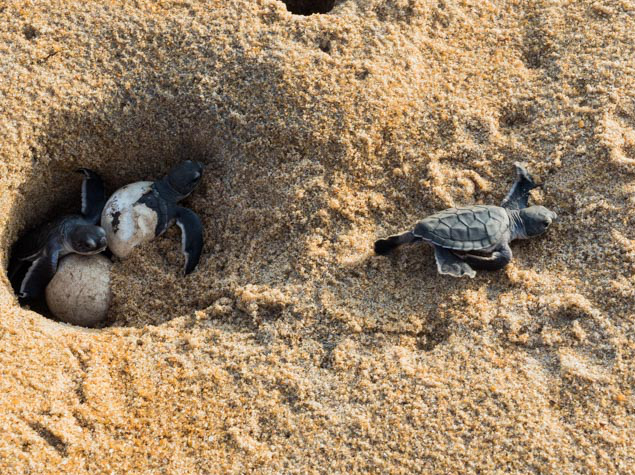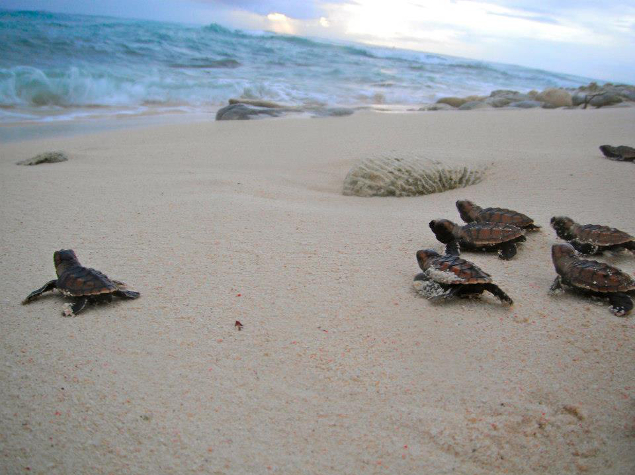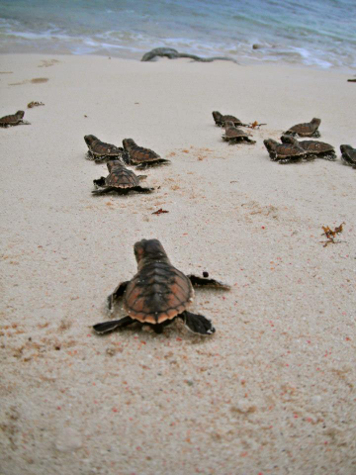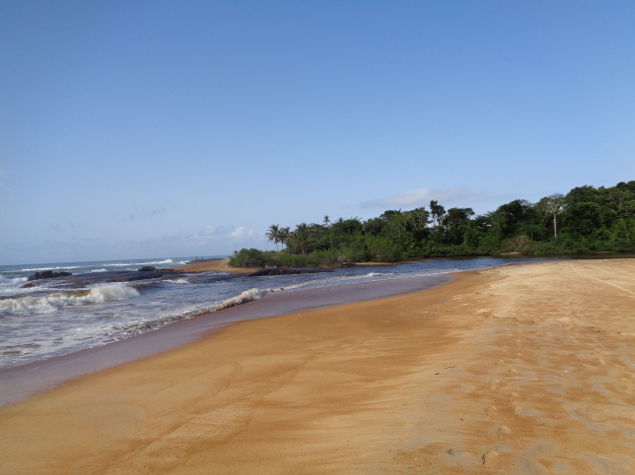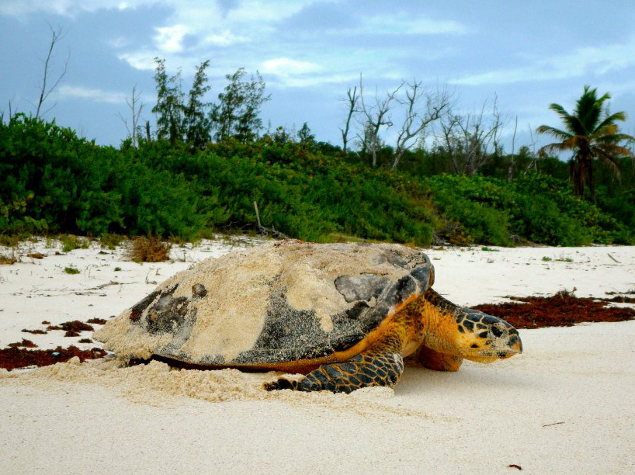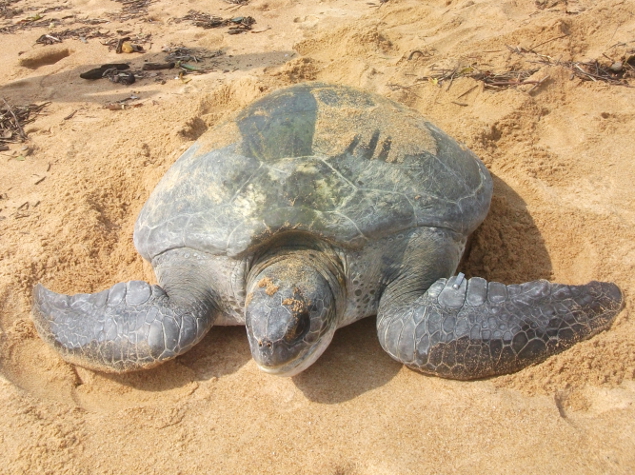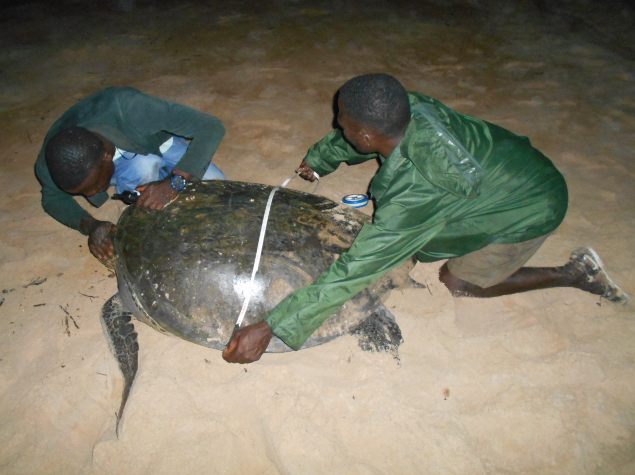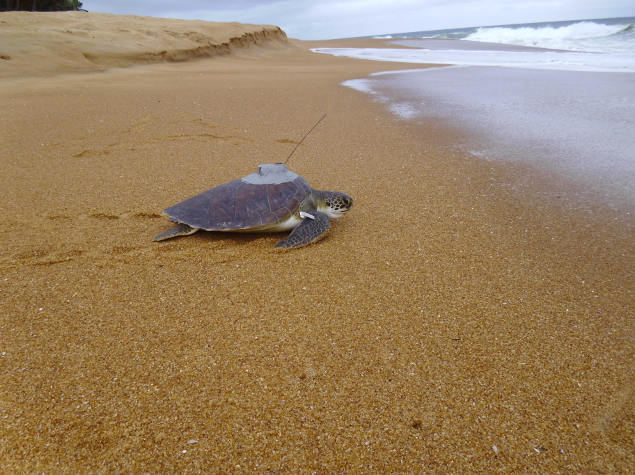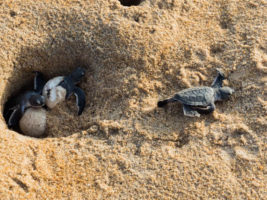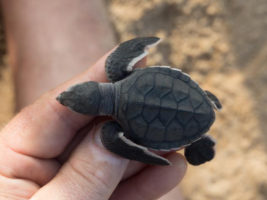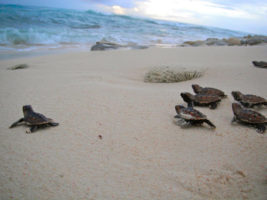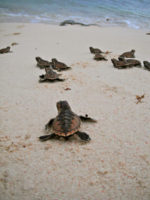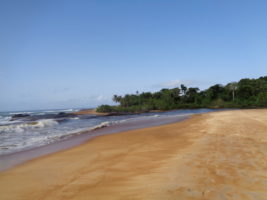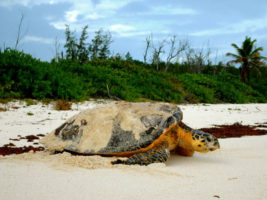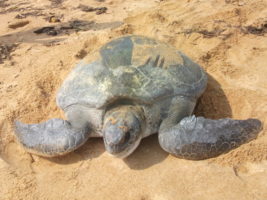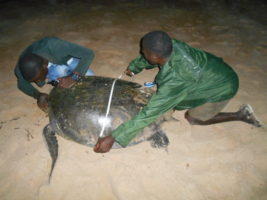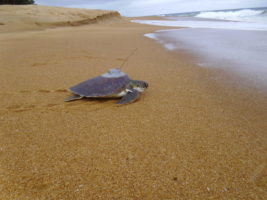Protection of green and hawksbill turtles and creation of a Marine Protected area in C├┤te dŌĆÖIvoire
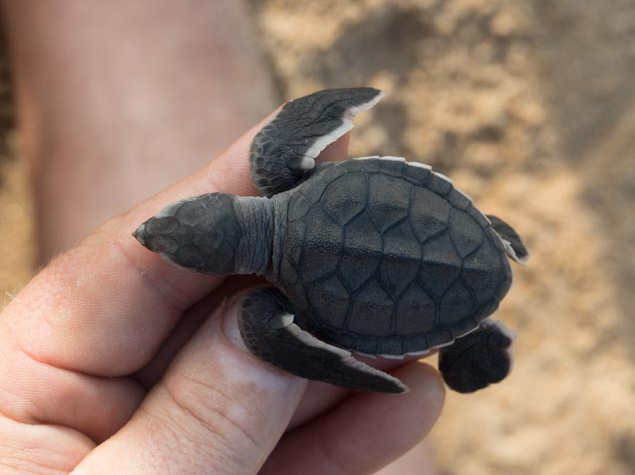
CEM (Protect Marine Animals) is an NGO that carries out sea turtle conservation activities on the 30 km stretch of beach between the villages of Roc and Kablak├®, the coastal region of C├┤te dŌĆÖIvoire most frequented by turtles.
The sea turtles are under threat on many fronts: illegal fishing, both industrial and artisanal, often carried out a few dozen meters offshore using inappropriate methods (incorrect mesh size, banned products, etc.); uncontrolled exploitation of natural resources; deforestation for agriculture; charcoal production; poaching; beachfront hotel construction; and weak law enforcement.
Every year, the NGOŌĆÖs teams succeed in protecting between 30 and 50 green turtle nests and from 2 to 10 hawksbill turtle nests on the beach. But their habitats include marine areas containing feeding and nursery grounds (rocks, coral, etc.) that are critical for the species.
This project aims to safeguard the marine habitat of these two species of turtle through the creation of a Marine Protected Area. To achieve this, two secondary objectives have been set:
- Marine ecosystem studies will be carried out. Details of the current fishing situation will be collected via interviews with artisanal fishers. Ten artisanal fishing boats will be equipped with GPS tracking systems to monitor their fishing areas, and fishing data will also be gathered at the ports of Dahoua and Grand-Bereby.
- Initiatives to protect the two species in the marine area will be launched. A description of green turtle and hawksbill turtle habitats will be made by CEM staff, working with local communities. It is planned to draw up a map of the various types of habitat and to carry out an inventory of marine biodiversity in the area. In addition, the turtlesŌĆÖ behavior in known feeding and resting areas will be observed. Finally, accidental capture data will also be collected.
Final report summary (November 2019):
During the period supported, a study of the fishing practices and an underwater survey of the zone has been undertaken. The Grand-Bereby marine area is now the first Marine Protected Area planned in C├┤te dŌĆÖIvoire. Thanks to this project, the Ministry of Environment and the Abidjan Convention recognized the interest to establish the first Marine Protected Area of C├┤te dŌĆÖIvoire in this area. A new project, implemented by Exeter University and funded by Darwin Initiative, is actually ongoing to delimitate the MPA, to develop its management plan and also to offer income-generating activities to fishers. Once these activities are done, the protected area will be effective.
Meanwhile, turtle monitoring continued through the positioning of satellite transmitters to study their displacements in the sea. Also, discussions with fishers about bycatch, the area frequented by the turtles, etcŌĆ” took place.
8 eco-guards have been trained to anti-poaching in a future Voluntary Natural Reserve (a terrestrial zone which become a reserve upon request of the owner with the agreement of the Government) which is adjacent to the Marine Protected Area. Partnerships with local hotels continue and there are nearly 400 tourists which could observe layings. Finally, CEM estimates that between 600 to 700 layings are protected and nearly 50 000 juveniles are born each year of the project.
An initial phase of the project has already received Fondation Ensemble funding. You can find more details here.

